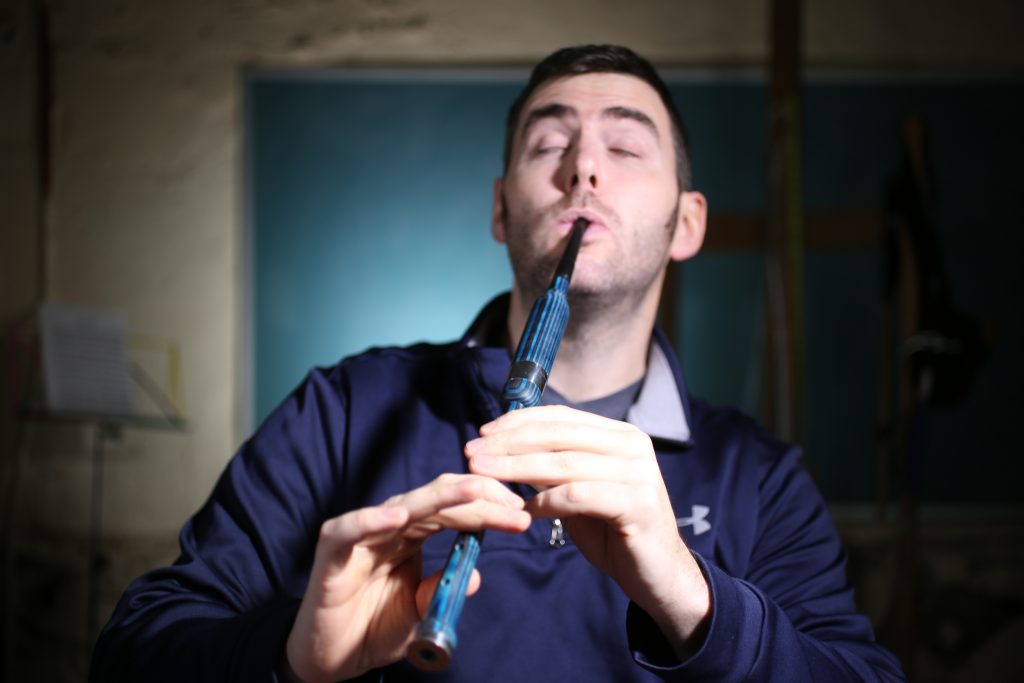Vincent Guinnane: A Visceral Feeling

My Dad's friend asked if any of his sons wanted to learn the pipes, and I volunteered at the age of eight. He took me over to the Essex and Kent Scottish Militia Regiment in Windsor to learn from the Pipe Major Donald MacKinnon.
I wanted to play with a band like the Regiment that I was first learning under and later the St. Andrew's Society Pipe Band of Detroit, as well as solo piping. My family was looking to move back to England from the US, so I was looking to join the K Company of the Scots Guards as a student piper at 16.
I saw a Scotsman at the World's Fair in San Antonio, Texas and switched from wanting to learn violin to bagpipes. My great grandfather, James Gilgert Ross, may have been a piper with a regiment, but I haven't been able to confirm that. Mostly, when I heard the bagpipes it always seemed a visceral feeling that I had to play.
My biggest issue has been solo piping anxiety, which was brought back when I wasn't allowed to move from Grade 3 to Grade 2 when I was 2nd Overall in the WUSPBA. Getting older just makes it feel like I am running out of tries.
I felt like quitting when I was young because I didn't have my pipes, but always came back to needing to play the bagpipes. I stopped solo piping when I wasn't moved up to Grade 2, but still felt the yearning. I guess that I'm just hardheaded.
The Dojo Community is a great place to be. It is all about piping and sort of to a "nerdy" level which is really the immersion. If I wasn't working, I would probably be on here full time. It has helped me with calibrating my pipes which has made my pipes easier to play and I have helped other pipers with this. I did know some of it before, but it made it a checklist like a military PM (Preventive Maintenance) list. It has helped to point out some of my deficiencies, but also some kudos on my playing like birls and playing the idioms. The Bagpipe Freedom process has felt a little frustrating because of "hitting the beat" especially because I want to complete it and get onto the other subjects with only so much time available currently due to work, but I bounce back and continue. I have been able to move up through quite a few of the belts with my various experiences as piper which feels confirming.
The calibration steps has made it easier to get any set of pipes to play more easily and also help me to bring a band bagpipe into line. The Bagpipe Freedom process has pointed out posture, bagpipe fit and control points which assists with troubleshooting and narrowing down issues.
I think that it helped me to mechanize or quantify things with the "blow method" and checklists. I have also generally gotten confirmation of my tuning from the instructors in the phases.
I have had fun working with the Dojo instructors on the various idioms, like the Strathspey details. Even though I am having trouble "hitting the beat" to pass Phase 5, I have gotten good overall comments on my piping which helps me to carry on. Of course, if a Starbucks coffee helps me get across the finish line, I'm not "agin" that.
Vincent Guinnane, California, USA




